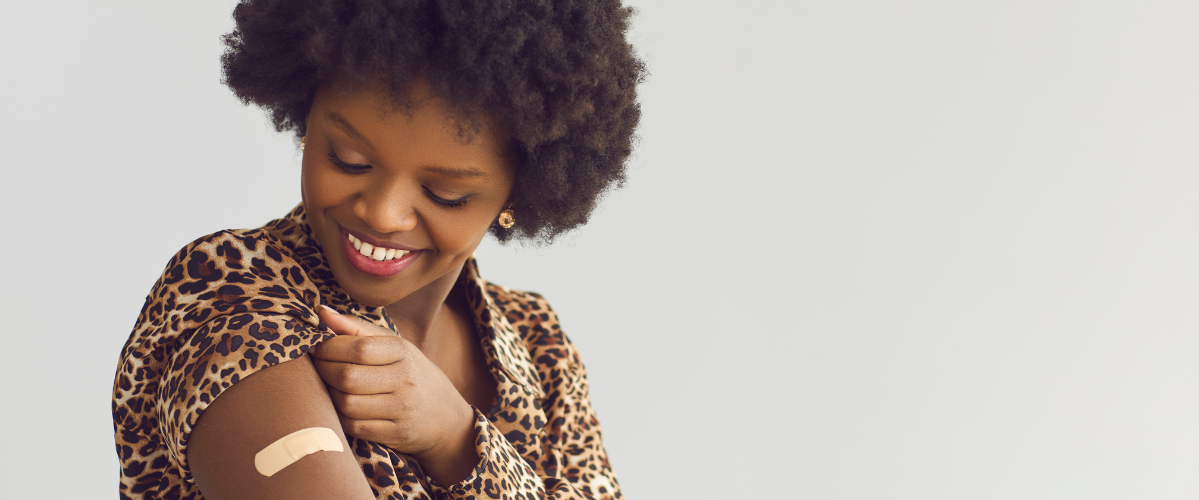One of the biggest successes in the history of public health was the introduction of vaccines.
The advent of vaccines and immunization programs have been a fundamental factor in the health of our societies, and reflect a vital primary prevention tactic.
Vaccines protect us from vaccine-preventable diseases (diseases caused by certain viruses and bacteria), and essential to this protection is herd or community immunity, acquired when most of a population is protected from a disease. This means that it’s not just up to us as individuals to get our vaccines for ourselves, it’s up to us to be vaccinated so we can protect our populations.
Now, according to the World Health Organization (WHO), one of the biggest threats to modern public health is vaccine hesitancy: the reluctance or refusal to vaccinate despite the availability of vaccines. In fact, in 2019 the WHO listed vaccine hesitancy in the top ten threats to global health, stating that vaccine hesitancy “threatens to reverse progress made in tackling vaccine-preventable diseases.”
What drives vaccine hesitancy?
Factors include: lack of understanding about the vaccine, immunizations in general, or severity and incidence of vaccine preventable diseases; perceived risk of serious adverse events; and sociocultural beliefs.
Also, vaccine hesitancy is driven significantly by misinformation and disinformation—another major threat to our health. What we share online, in discussions with family and friends, and in our workplaces spreads information widely, and it is very important that what we are sharing is accurate and evidence-based. Otherwise, we risk increasing incorrect knowledge, assumptions, and fear.
The opposite of vaccine hesitancy is vaccine confidence. This is what we must strive for today, in relation to COVID-19 vaccines in particular, and every day for all vaccines. Vaccine confidence means that we have trust in vaccines, providers, and vaccine development.
We now have four approved COVID-19 vaccines for use in Canada. For the vaccination program to be successful, we need a majority (estimated to be at least 70%) of our population to get immunized. As these vaccines are new, it’s understandable that people have questions and want their concerns addressed. The vaccines are novel, and we need to better understand how they work in the real-world—keeping in mind this does not mean they are unsafe or risky.
Gathering evidence-based information, speaking to health professionals, understanding the presence of, and avoiding, mis- and disinformation, and using critical thinking can resolve questions and alleviate concerns.
The internet can be a great resource but make sure the sites you visit are reputable, trustworthy, and scientifically-sound; here’s some tips for what to watch out for online. This video offers a quick and clear summary of our COVID-19 vaccines, including the risks of not getting one. Use the facts: vaccines work, vaccines are safe, vaccines save lives.
Vaccine confidence will inspire more people to get vaccinated and will reduce illness, hospitalizations, and deaths caused by COVID-19—this will bring us closer to the putting an end to this global pandemic.
Today we call on you to Activate Health by getting your COVID-19 vaccine (when eligible, if able); do your part, get your shot! Encourage your friends and family to do the same.
Share a photo of your vaccination on social media, tell your friends about the experience, and in general talk about the importance of these vaccines—be a COVID-19 vaccine ambassador!
It is also important to understand, and respect, that some people can’t get vaccines for certain reasons. This means that for those who can safely get vaccines, doing so is even more critical to ensure we protect others. Our individual choices matter, and impact others: this is how we Activate Health.
And don’t forget, if you’ve been vaccinated, you still need to follow public health orders: wear a mask, gather outside only in your small group, and keep your distance—we have to stay strong and safe for a little while longer.
Let’s work on spreading accurate information.
Let’s encourage our loved ones to get vaccinated.
Let’s discourage and educate those who spread misinformation.
And ultimately let’s share the joy that these vaccines will help put an end to this pandemic and bring us back together as friends, families, colleagues, and communities.
Share post:
